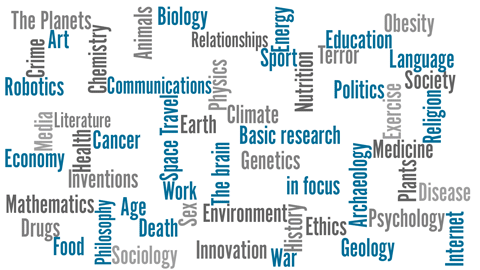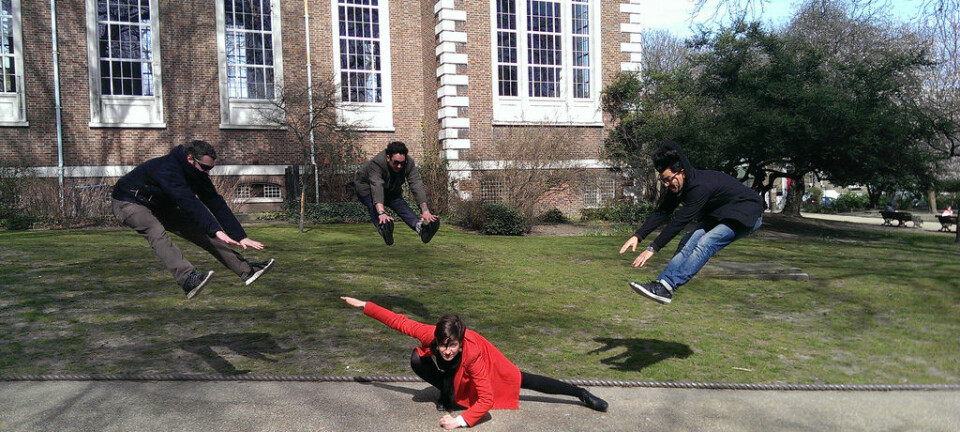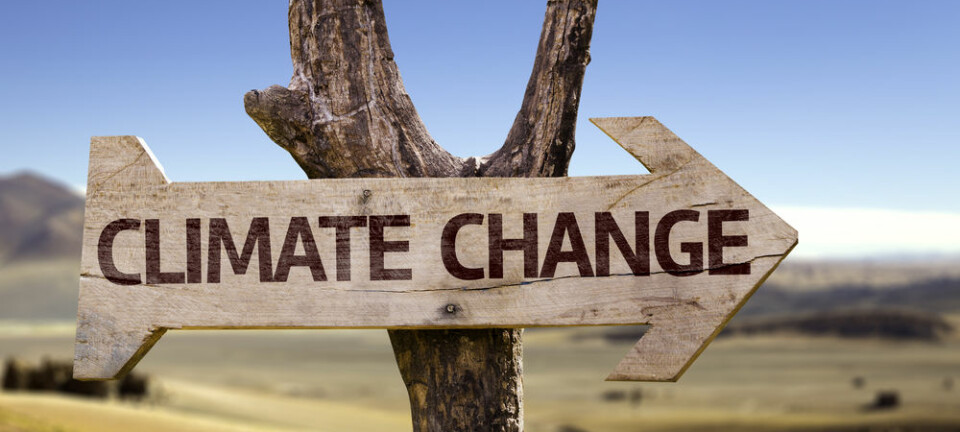
Why we need social sciences more than ever
For the first time, the Earth is being shaped more by humans than by nature. This is why we need more research about human behaviour, say social scientists.
Some of the biggest global challenges are man-made: human activities are causing both dramatic climate change and the extinction of animal species.
This is why many geologists and social scientists suggest that we are now living in a new era: the Anthropocene—a period in time where the collective activities of human beings are, for the first time in the history of the Earth, having a bigger influence on the planet’s development than natural processes.
“Humanity has now left such a large imprint on the planet that the physical climate is changing. We are lacking progressive, research-based solutions to how we should meet these challenges,” says Associate Professor David Budtz Pedersen from the Department of Communication and Psychology, Aalborg University, Denmark.
Humanities research could encourage us to change our behaviour so that we reduce CO2 emissions and deliver solutions to global challenges such as terrorism, political extremism, globalisation, and mass migration, says Pedersen.
Read More: Humanities research contributes to artistic creation
The humanities offer solutions
In contrast to natural sciences, social scientists deal with something we all experience: culture. We cultivate nature, use technology, consume products, communicate and share knowledge, form opinions, engage in politics, exercise, have families, and use language.
“We are faced with such large-scale cultural and human challenges that societally speaking it’s a problem to not include the humanities and social sciences in the conversation about how to solve these global problems,” says Pedersen.
He believes that basic research in humanities can guide us in how we can best organise ourselves to address and ultimately to survive the Anthropocene.
Read More: In the digital age, the humanities can afford to go on the offensive
Biotech is a hot topic
But social sciences are rarely included in such discussions between scientists and politicians.
For years, only the natural and technical sciences have been seen as the research areas that will save us all, says Pedersen.
“Our entire research system and our view of basic research are modelled upon an ideal of 'technological breakthroughs'. Since we began to map the human genome in the 1990s, biosciences and biotechnology have become the ideal model for conducting research. Before that it was physics,” he says.
“Humanities research has long been subject to a structural marginalisation. The methods used to measure the value of research to society is modelled on a scientific ideal that humanists and social scientists cannot meet. Patents, licenses and royalties are not typical proxies for impact in the humanities. Instead we should look for novel explorations and interpretations,” he says.
Read More: Humanities cutbacks hit women
Humanities are not the ideal
Future ideals are that science should lead to technological innovation and economic growth. And research is given extra weight if the results are published in one of the top-ranking scientific journals such as Science or Nature.
Medical programs, green technology, and consumer goods take pride of place—and in recent years, health sciences, natural sciences, and technological innovation have received the highest share of the funds from both public and private foundations.
The humanities have struggled to keep up with this scientific ideal.
“The breakthroughs in social sciences are not technological. They’re breakthroughs in our patterns of understanding,” says Pedersen.
“We often talk about concepts like multiculturalism, social cohesion, and post-truth politics as concepts that have just fallen from the sky. The reality is that these concepts stem from basic research in the social sciences,” he says.
Read More: Room for interdisciplinary engagement
Society needs more than just growth
Christian Kock is a professor in rhetoric at the University of Copenhagen, Denmark. He agrees that the big challenges of the day require social science solutions.
“There’s a massive tendency to place the natural sciences ahead of social sciences. We don’t hear a single politician speak about the importance of protecting and supporting the humanities. At the same time they stand shoulder to shoulder, stating how important the natural sciences are,” he says.
Basic research in the natural sciences can be more directly converted to economic growth than social sciences, admits Kock. But society needs more than just growth and technological advances are only beneficial if we use them appropriately.
“Breakthroughs in the natural sciences are not necessarily converted into improved quality of life. New technology has the potential to enrich our lives, but only if we study how to use technology and what it does for people and society,” he says.
Read More: "Climate change needs to be adressed locally, not globally"
Social sciences create order
History, literature, art, anthropology, philosophy, religion, and other social science topics are the basis for civilisation, says Frederik Tygstrup, a professor in the Department of Arts and Cultural Studies at the University of Copenhagen and chairman of the Humanities section of the Danish Council for Independent Research.
Without the social sciences we would be barbarians, says Tygstrup.
“It’s crucial that there’s an awareness of the history of society and the way people organise their lives with each other. The humanities prevent society from becoming random and barbaric,” says Tygstrup.
“The humanities don’t provide unambiguous answers, but it does make us better at asking the right questions about how we can best live our lives together from day to day in a changing world,” he says.
-----------------------
Read the Danish version of this article on Videnskab.dk
Translated by: Catherine Jex














